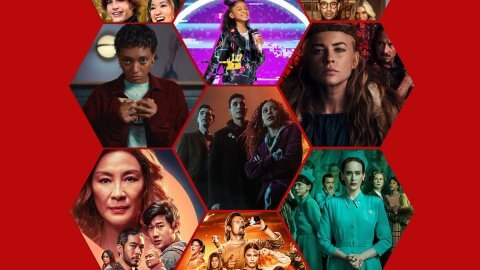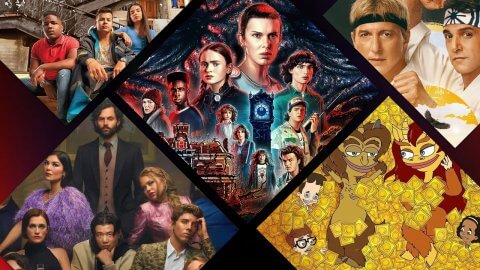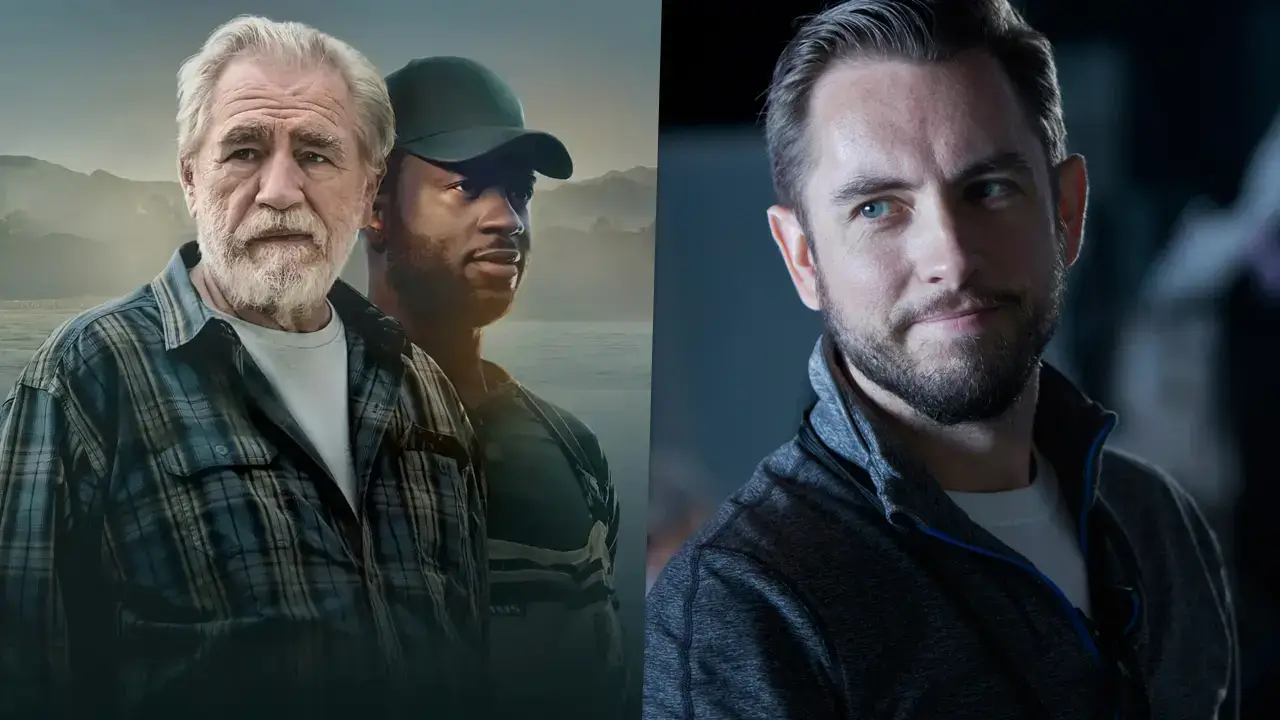
Picture: Blue Fox Entertainment
Films can seemingly appear out of nowhere on Netflix and dominate the Top 10 lists. This has occurred in the United States over the past few days with Mending the Line, a small indie movie currently sitting at the top of the US Top 10 lists. We spoke with the director about its sudden success and the reasons behind its resonance.
In case you missed it, Netflix serves as the SVOD debut for the Brian Cox-led drama written by Stephen Camelio and directed by Joshua Caldwell. As Caldwell explains the movie, “It’s the story of a Marine who’s been wounded in Afghanistan, and he’s sent to a VA clinic in Montana where he meets an older Vietnam vet who teaches him how to fly fish as a way of dealing with his trauma.” It’s not based on a true story the director told us but instead based on many true stories.
The film was licensed to Netflix in the United States on March 23rd and instantly rose to the top of the charts. It featured as the sixth most watched movie on the 24th but was the number 1 film on March 25th, 26th, and 27th and got knocked off the top perch by the Ben Affleck thriller The Accountant today.
We contacted the film’s director, who graciously agreed to discuss the film’s newfound success on Netflix.
Note: This interview has been edited for brevity and clarity.
Kasey Moore: When did you first learn that the movie was coming to Netflix? It’s been a long journey, hasn’t it?
Joshua Caldwell: Yeah, it has. And to be honest, we learned last week. We didn’t really have any forewarning about it, which makes the ascent so much more remarkable because we just didn’t know. We didn’t do any press and we didn’t do any marketing.
So, was it Blue Fox Entertainment that sold the movie to Netflix following the theatrical release last year?
Blue Fox was our theatrical distributor, but our worldwide home video distributor is Sony. We had the film come out in theaters in the US last June. And it didn’t really hit. Obviously, theatrical is incredibly challenging right now. We came out in June when we were up against Indiana Jones and a bunch of other big movies. You can put the film in 400 theaters, but unless you’re doing a real substantial marketing spend to raise awareness, it’s very challenging.
Then, in October, we came out on VOD and hit Apple and Amazon and all that kind of stuff worldwide. But again, in this day and age, how many people are renting movies, and how many people are purchasing digital versions of movies?
It flew under the radar last year; I think it got overshadowed a lot for sure, but that’s kind of the beauty and also the odd thing about Netflix, that a small indie movie is being watched more than any kind of blockbuster on the site and being done with absolutely zero marketing and zero advertising. It’s really remarkable.
Why do you think the film is resonating so much on Netflix? It’s just in the US for now, but why do you think it’s playing so well, especially given so many things are on Netflix competing for your time?
In general, it’s a positive film. It’s about hope, healing, and overcoming trauma. As filmmakers, we wanted to take that audience experience through the same journey that Colter [the character played by Sinqua Walls] is on. There’s a lot of action and intensity in the very beginning. After that, it becomes like a river flowing where you have rapids at times, but then it flows out into a pool, and it gets very calming. I think people are tapping into that experience of watching it.
I also think, certainly, in America, as a country, it’s been very traumatizing the last couple of years for a lot of people in various ways, and mental health is at the forefront of the conversation for people. And I think that people are just naturally tapping into the desire to find something that will help them in some way. Not to say that this movie does that, but I think it maybe just, you know, fits into this sort of desire to kind of find a way to overcome what we’re experiencing and the recognition that we’re experiencing this kind of every day, this fight or flight type of response.
That’s why I think it’s hitting; it’s not just a story about veterans, it’s a much more universal message of hope and healing. And that’s why we have the character of Lucy in there that she’s not a veteran, or her husband or fiance is not a veteran, but she’s dealing with her own grief and her own trauma.
I’m as shocked as anyone that it’s taken off the way that it has, but obviously, I’m thrilled. I’ve always believed that there was an audience for this, and it was really just about getting it in front of them so that they could actually sit down and watch it.
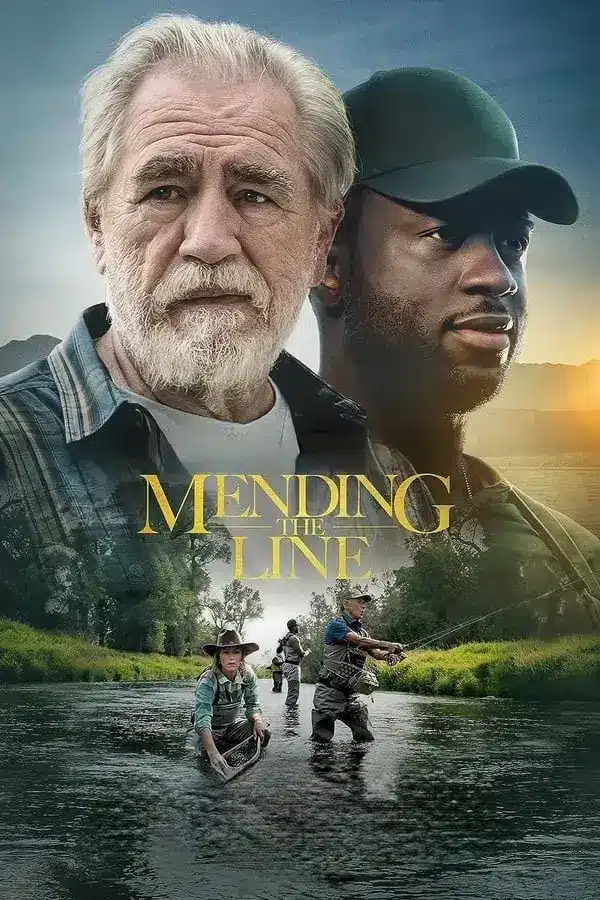
Picture: Blue Fox Entertainment
Have you noticed a lot of people talking about the film? Have people been reaching out? Have you looked at any of the online reactions so far?
Yeah, it’s been really remarkable and really humbling to see everyone commenting on the film and the comments about how there are some things like, “This reminded me of my grandfather” or “It finally helped me realize what my husband or wife went through.” It’s been really touching to see so many people sharing their personal stories in how the film affects them and beyond that.
That’s a lot of what we wanted the film to do which is why we partnered with organizations like Project Healing Waters, Hope for the Warriors, and Quiet Waters that are using the film to spur a conversation to allow veterans to share, veterans to talk because that becomes a very cathartic experience for them.
Can we talk about Brian Cox? He was at the height of Succession while filming this? How was he to work with? It’s amazing how much different he is from Logan in this film.
Brian is known for playing villains, and while he’s, you know, a little antagonistic in this, that’s what made him the perfect guy for the role because, as a director, I firmly believe that often audiences will carry into a film the other performances of the actors. They’ll create expectations around characters and then subvert them to really make you fall in love with them over the course of the film. It was a lot of fun, and he did a great job.
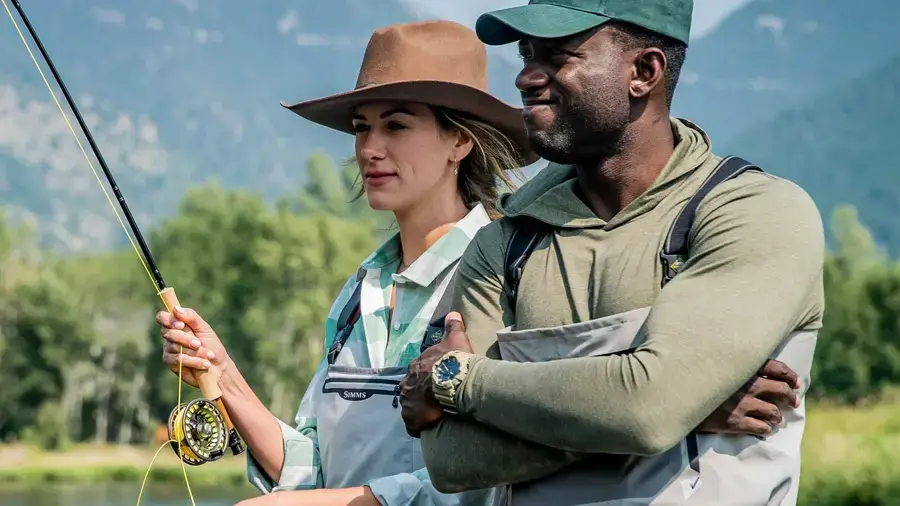
Picture: Blue Fox Entertainment
What’s next for you? Do you have any new upcoming projects?
We’re hoping to announce something now, but I have two projects that I’m attached to that we’re currently casting. So that’s exciting. I’m trying to get stuff going; obviously, with the writer’s strike and SAG strike last year, I put a few things on hold. But yeah, hopefully, some things are coming down the pike for me, and I’m looking forward to getting those going.
Thanks to Joshua Caldwell for his time and Kelly McKendry from August Point Productions for making this happen.

